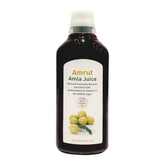
Why plant-based protein
Why plant-based protein?
Eating more plant-based foods and following a carefully planned vegetarian diet can supply all the kinds of essential nutrients that you need for your age, gender and activity levels, and other than that get countless other benefits.
A varied, whole food vegetarian diet typically contains less saturated fat and more folate, fiber and vitamins C and E. Most vegetarians comfortably meet their five-a-day, and many exceed this recommended amount of fruit and vegetables. Plant-based diets also use fewer natural resources and also less associated with environmental damage.
Which plant-based foods are a good source of protein?
Protein is one of the nutrients that those starting a plant-based diet are often concerned about. However, there are plenty of valuable plant sources.
You may have heard some plant proteins referred to as being ‘incomplete’; this is because they are short of one or more of the essential building blocks – amino acids – that we need for growth and repair. Eating a varied diet that incorporates different sources of plant proteins will ensure you obtain all the amino acids you need. It’s also comforting to know that there is no evidence to suggest those following a varied plant-based diet are likely to be deficient in this vital macronutrient.
We’ve assessed the protein content of a range of plant foods, both for their comparative protein content and the amount they contribute in a typical serving – this means you can pick and choose from our list with confidence.
Our top 20 plant-based proteins are:
- Tempeh
Made from fermented soya beans, tempeh is rich in protein. In fact, weight for weight, it’s denser in protein than tofu, with a 100g portion providing 20g.
Soya provides all nine of the essential amino acids we need for growth, repair and functions like immunity, making it a useful inclusion for those following a plant-based diet.
- Lentils
Budget-friendly, quick and easy to prepare, lentils add 'meaty' substance to meals and work well in dishes such as vegan lasagna or vegan sweet potato cottage pie. As much as a third of the calories from lentils come from protein, which makes this legume one of the highest in protein by weight.
Pulses such as lentils contain approximately twice the amount of protein of whole grains including oats, wheat, barley and rice. Combine the two and you have the perfect mixture, with one compensating for the other in terms of their contribution of essential amino acids. Add just 3 heaped tbsp. of cooked lentils to your meal and you’ll get about 9g of protein as well as fiber, folate and potassium.
- Edam me beans (soya beans)
Beans are among the best plant-based protein sources, and Edam me are up there with the best of them – an 80g cooked serving of these versatile beans provides 8.7g protein.
- Tofu
Made from cultured soya milk, a 100g portion of tofu provides about 8.1g protein. Available in different forms, including silken, firm and marinated, this soya product is incredibly versatile – use it to make tofu breccia pancakes or create a Japanese-inspired salad.
- Peanuts
Peanuts are not actually a nut, but a member of the legume family, along with soya beans, lentils and garden peas. Also known as groundnuts, peanuts develop in pods grown along the ground rather than on trees. A small handful of peanuts or 2 tbsp. of peanut butter provides about 8g protein. Add peanuts to vegan curry or make your own peanut butter that you can add to porridge or a smoothie for a protein power boost.
- Pumpkin seeds
A 30g serving of pumpkin seeds provides an impressive 7.3g protein and contributes useful sources of zinc and iron.
These tasty little seeds make a handy snack. When cooking with pumpkin, don’t waste the seeds – enjoy them roasted or add to a salad, such as in our super food salad with citrus dressing.
- Chickpeas
With a healthy mixture of protein and fiber, chickpeas are filling as well as good for you. Don’t restrict them to hummus – enjoy them in a curry like our chole with cumin rice raita or savory bowl, like our chickpea, spinach & almond butter bowl. These delicious recipes combine chickpeas with grains or nuts to deliver all the amino acids you need. An 80g portion of chickpeas (cooked) provides 6g of protein.
- Almonds
Almonds are a great source of bone-friendly minerals such as calcium and magnesium. Their naturally sweet flavor makes them a versatile ingredient – enjoy for breakfast in our almond crêpes with avocado & nectarines or as a tasty addition to our linguine with watercress & almond pesto. A 30g serving (roughly a small cupped handful) provides 6g of protein.
- Sunflower seeds
A tasty addition to a granola, seed mix or salad – such as our broccoli pasta salad with eggs & sunflower seeds – just a small handful (30g) of sunflower seeds provides a useful 5.9g of protein. Loaded with selenium, sunflower seeds may also help support your immune defenses and thyroid function.
- Kidney beans
Packed with heart-friendly nutrients including potassium, folate and fiber, it’s not just their protein contribution you’ll benefit from when you add kidney beans to your plate.
With an 80g portion of kidney beans (cooked) providing 5.5g of protein, they make a useful addition to spaghetti puttanesca as well as vegan chilly.
- Garden peas
Not a vegetable but a small, edible legume, peas actually belong to the same family as lentils, chickpeas, beans and peanuts. They are a useful vegan source of iron and B vitamins, which are of particular importance for women of reproductive age as well as growing children. An 80g portion of peas (boiled) provides 5.4g of protein – try our asparagus & lemon spaghetti with peas or our delicious leek, pea & watercress soup.
- Pistachios
A popular ingredient in desserts and puddings, these delicious nuts add an intriguing color to dishes thanks to the colorful pigments that have protective properties. Compared to most other nuts, pistachios have a lower fat and calorie content, and contain the highest amount of potassium.
Just a 30g serving of pistachios provides an impressive 5.4g protein. Don’t reserve them for sweet dishes – add them to side dishes like our sizzled sprouts with pistachio & pomegranate or herb salad with pomegranate & pistachio.
- Cashews
Adding just 30g (roughly a cupped handful) of cashews will provide 5.3g of protein. Cashews are a useful source of iron and zinc, and make a delicious snack as part of our curried cashew dip. They also add nuttiness to our roasted cauliflower with a tomato & cashew sauce.
- Wild rice
Richer in protein that regular rice and contributing more potassium, phosphorus and folate, a 100g portion of boiled wild rice provides 5.3g of protein. With a nutty taste and chewy texture, wild rice makes a delicious addition to a salad. Try our mixed bean & wild rice salad or sesame parsnip & wild rice tabbouleh.
- Black beans
As well as being a good source of protein – an 80g serving provides 4.8g – black beans are packed with heart-friendly nutrients including folate, potassium and fiber.
- Quinoa
Although typically used as a grain, quinoa is in fact a seed. Unlike grains, it's also a complete source of protein, providing all nine essential amino acids. Gluten-free and incredibly versatile, you can enjoy quinoa for breakfast, lunch or dinner.
- Oats
Rich in slow-releasing carbs and dietary fiber, oats are also a useful contributor of protein, with a 40g serving providing 4.4g. Use them in our dairy-free banana oat pancakes or vegan ‘meatballs’.
- Broad beans
Rich in fiber and protein, broad beans are a satisfying component of any meal. An 80g portion (boiled) provides 4.1g of protein. Try our barley & broad bean risotto, or make our tasty twist on an all-time
- Wheatgerm
This is the nutritious centre of the wheat grain, which is typically removed from most white refined wheat products. Rich in protein, fibre and healthy fats, wheatgerm is also packed with magnesium, zinc and folate.Often added to cereals such as our high-fibre muesli, wheatgerm makes a nutritious addition.
- Hemp seeds
Exceptionally nutritious, with more than 20% of their calorie content derived from protein and a source of unsaturated, healthy fats, these little seeds make a nourishing addition to cereals, bakes and snacks.


